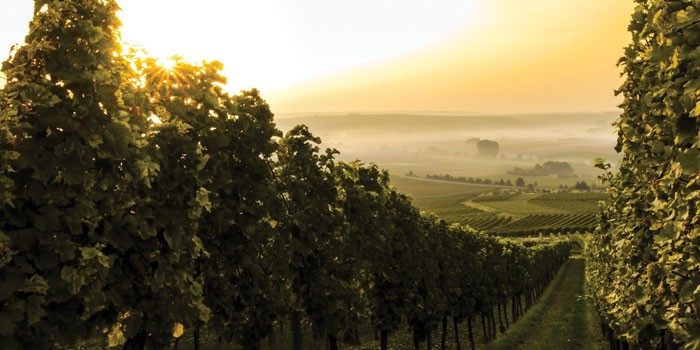Evo Italian Restaurant
- 561-745-2444
- email us
- Jupiter, Florida, United States


In order to appreciate, understand, and cultivate organic and biodynamic wine, the ideology and ecology behind it must be reviewed. Does certified organic mean the wine is better for us? High sugar contents and often high PH levels (to deal with variants in acidity and unwanted organisms) can alter the wine’s taste, unless it is stored in a cool cellar, which can help prevent spoilage. Is a hangover still the result after consuming too much organic wine? It doesn’t contain the nasty chemicals, but the body processes alcohol in the same way, with ethanol having a dehydrating effect. Consuming colossal amounts of organic or biodynamic wine could just as easily leave your mouth tasting like you’ve licked the bottom of a hamster’s cage, your stomach feeling like it’s done a triple back flip, while your head has bluebirds circling it in a Disney-esque fashion. »
Organic
For a wine to be classified organic, it really comes down to the country in which it was produced. In Europe and the USA, the grapes must be grown without pesticides, artificial fertilizers, herbicides or fungicides. The UK is a little more relaxed, with just the grapes having to be organic in order to get a certification. Organic certification can also be difficult to obtain if the farm is in close proximity to a non-organic farm, due to potential chemical residue washing over into the organic land. By purchasing organic, it’s possible to be taking a green step to save our environment from the chemicals’ destructive effects.
Biodynamic
Biodynamic takes the organic notion and shoots it into a cosmos, way beyond many people’s comprehension. Austrian Spiritual scientist, writer, educational philosopher, and free thinker Rudolf Steiner (1861-1925) was hired by members of the Austrian farming industry to write lectures on increasing soil fertility without using chemicals. In short, this “thinker” covered many subjects in his slightly lopsided brain. Some of his theories sound bonkers, like burying items such as quartz, cow manure, and oak bark in items like cow horns, cow intestines or the skull of a farm animal. Followers believe that these methods, along with plants, bugs and the position of the planets, help stabilize the soil, enabling it to be all natural and rich in nutrients, resulting in a stronger crop.
The cynics and in some cases, utter disbelievers, think that Steiner was a raving lunatic. So what if he never studied agriculture or he spent his spare time talking with the dead. Steiner went beyond the boundaries of science with his limitless imagination and ideas. Some of the best ideas can form a new reality, when it comes to a great imagination. A prime example is NASA teaming up with sci-fi writers to produce books that have the lines of fact and fiction blurred. Let’s cut the cow manure and get down to the facts. Like many religions, there is no proof that biodynamics actually works, yet there are some ideas used in this conviction which could impress. For example, planting nettles, which are rich in sulfur, next to vines, will help reduce the bothersome problem of mildew, which frequents Bordeaux in France. Instead of criticizing this ethos, view this theory as sophisticated composting, which is a well proven method.
The biodynamic and organic methods are gaining momentum in Europe and the USA, with millennials being more open to these methods. A number of US farmers now believe that longevity and maturity of the soil and vines will produce richer and more interesting wine. They also save money, eliminating the purchase of chemicals, yet spend more on manual labor due to the vines and soil needing extra hands-on attention.
As consumers, no matter which type of wine you buy, remember these important rules. You get what you pay for, try and shop from small vineyards (between 4-10 hectares). Remember that not all vineyards are certified organic or biodynamic, but they use many of the methods, (often labeled natural wine) and can also be very delicious. Purchasing organic, biodynamic or wines that use many of these foundations could mean the difference between buying a Fendi as opposed to Fruit of the Loom.
One may also find some delicious collections of organic and biodynamic wines through Wholefoods and Earth Fare. And, if you are in the Catering/events industry www.citybeautifulbeverage.com have access to a fantastic collection of natural and organic wines for you to choose from.